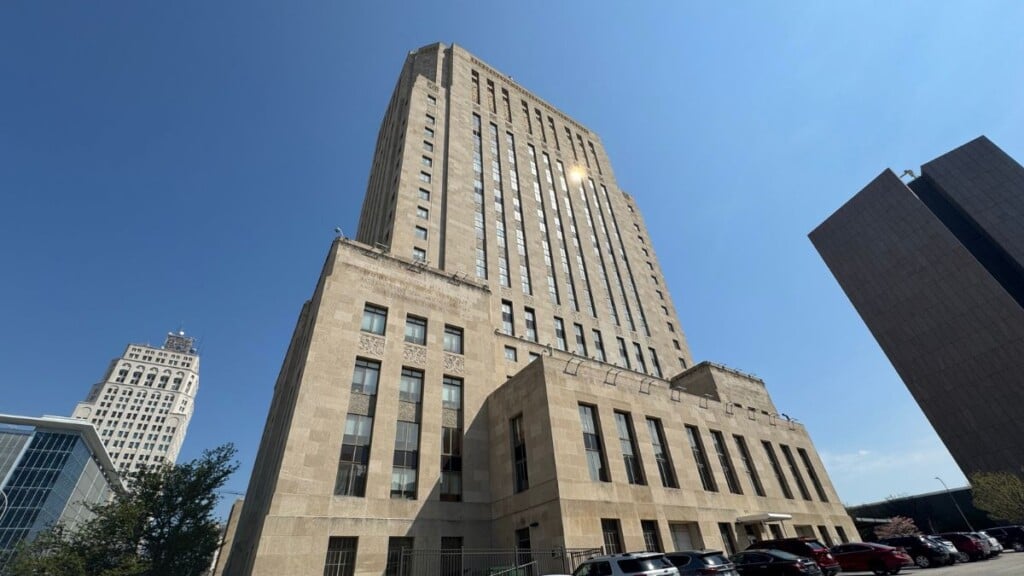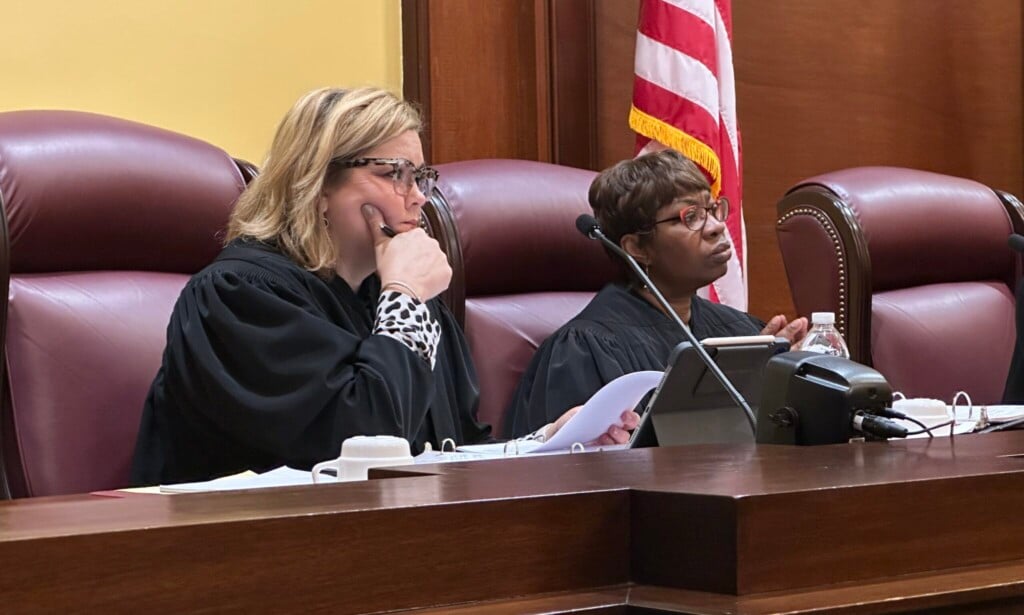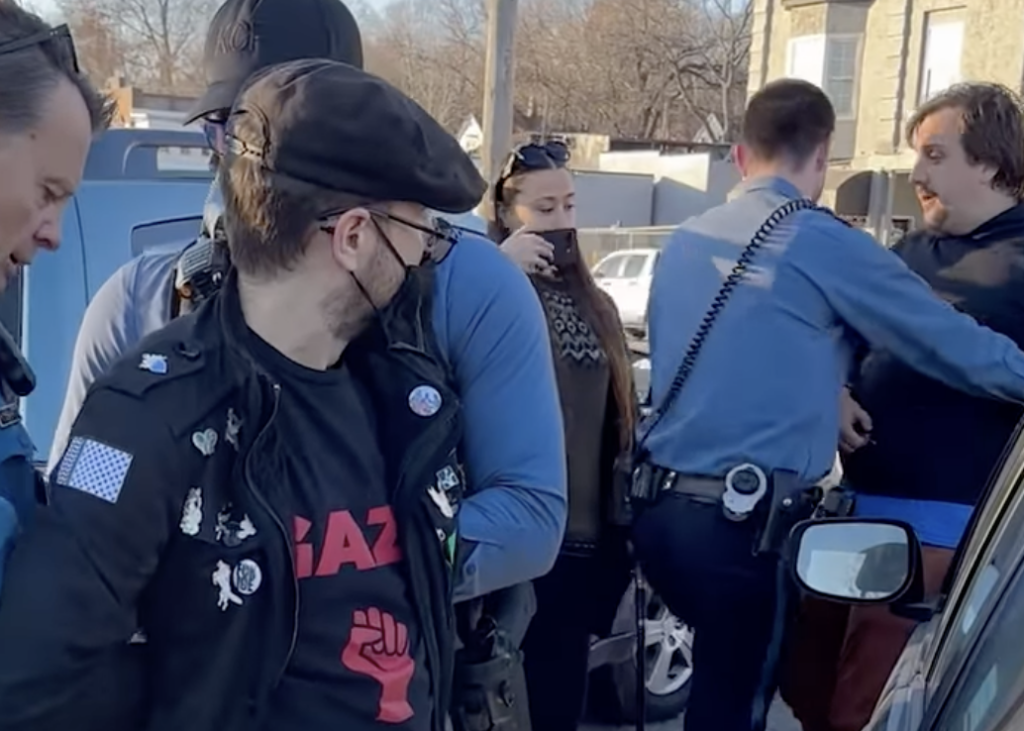Kansas City’s Eric Morrison announces 2024 gubernatorial candidacy
Morrison is the two-time defending runner-up for the Democratic nomination.
Eric D. Morrison, a Kansas City native and pastor of Kingdom Word Ministries, launched his campaign for the 2024 Democratic gubernatorial nomination from the State Capital building on Thursday, August 17.
Morrison, 60, is the second Democrat to declare, following Missouri House Minority Leader Crystal Quade’s July 9 announcement. It’s his third consecutive try for the nomination, having finished as the runner-up twice now with 31,474 votes in 2016 and 32,403 in 2020.
“I’m not interested too much in comparing myself to anybody,” Morrison says when asked how he might stack up against Quade. “I’m really not competing. I’m in a calling that I could not concede. I leave the evaluations and how I may be critiqued to everybody else.”
In terms of a proposed policy, Morrison’s latest campaign centers around the five E’s: Economy, Education, Ethics, Equality, and Environment. Promoting an economy of inclusivity and relief, focusing education reform in forms like early childhood care, countering acts of voter suppression, and eliminating “food deserts” in both rural and urban areas are just some of the issues he’d look to address with this platform.
Born in 1963 and raised near 42nd and Brooklyn, Morrison says he was “totally nonreligious” before he turned to his faith “every bit of about 28 and a half years ago.” He’s now been “pastoring” for nearly 23.
Having found his spiritual footing, Morrison eventually came to find a love for learning that he’d never had the opportunity to access as a child.
“I was scholastically bankrupt when I gave my life to Jesus,” he says. “I fought with my pastor not to go to school because [the pastor] literally made me go to school. At that point, everything opened up to me. Life itself just became so much more worth the while because of all that [I’d] missed out on.”
Morrison went on to earn a bachelor’s degree in Christian education and pastoral theology from the Heart of American Theological Seminary and an associate degree in biblical studies from Western Baptist Bible College.
With his mind nourished, Morrison went on to become a senior pastor in 2000, a position he has maintained ever since. It would be another 15 years before he even considered running for public office.
“It was written on my holy grail: Do not mess with the money, do not mess with the women, and do not mess with politics,” he says of his thought process at the time.
However, in 2014, Morrison watched a documentary centered around the school-to-prison pipeline that led him to begin researching the political implications on children and opportunity. Coming from a background where his own primary education had lapsed, to say the least, he saw the connections between poverty, environment, schooling, and economic mobility within his own experiences.
When he was young, Morrison explains, “I’d rather go to detention, I’d rather get suspended than to be laughed at by my peers. So this is what’s circulating in my mind,” he says, empathizing with children who lash out or fall towards the bottom of their peers in primary schooling.
Morrison continued to do his research, and his findings would influence his decision to run for the first time in 2016.
“When I looked at the suspension rate, pre-K to 12th grade, my mouth was wide open. I [couldn’t] believe that we as a state were ranking, even then, like 48th, 49th in school suspensions,” Morrison says.
As a Christian leader on a Democratic ticket, Morrison had to answer one particularly burning question. Thankfully, he brought it up on his own near the end of an interview with The Pitch on the eve of his campaign’s Aug. 17 press conference.
“The question came up today, and I quoted Jeremiah—the first chapter in verses four and five— where God speaks: “Before I formed you in the womb, I knew you.” And, for me, that’s already life. But, at the same time, how do you say to someone that they don’t have a right to decide for themselves? For me, that’s the place to let people decide,” Morrison says.
It’s a take that should ideally come off as refreshing—that one could disagree with something strictly based on their own personal religious convictions and yet still support the rights of his or her fellow woman’s autonomy.
But in this political landscape, that’s simply not the case. Historically, it never really has been. Where there is genuine religious devotion, there will always be the opportunistic politician looking to panhandle the Word of God to win elections or falsely justify the mistreatment of someone else. Were he elected, Morrison looks to buck that political culture of contrivance.
“I’ve heard some politicians, if you want to say, ‘use scripture,’” Morrison says. “And you get to see the same results over and over. I know that my application of the Word of God in my life changed my life.”





